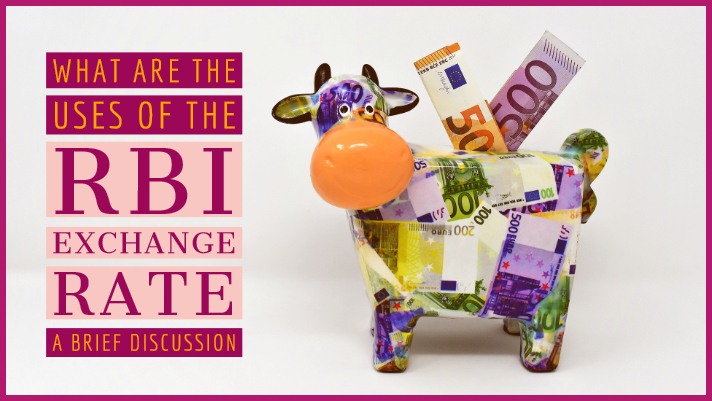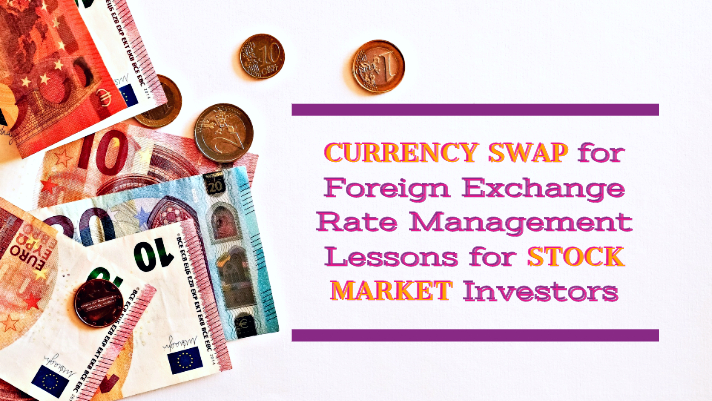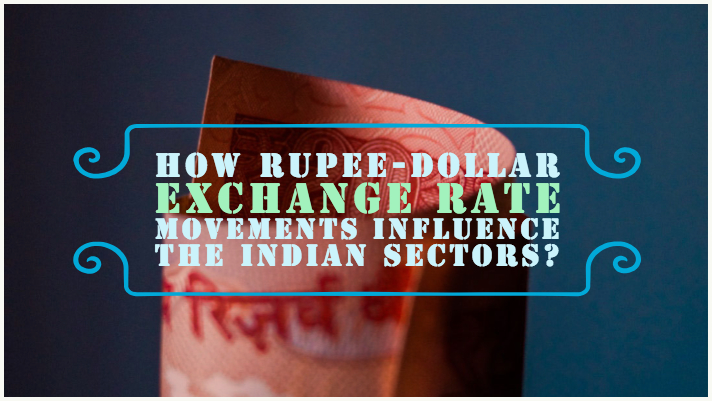Published : January 8, 2019

The rupee reference rate published by the Reserve Bank of India has a special place in the economy. This reference rate or the exchange rate is the rate of other currencies against the Indian rupee. The RBI calculates these rates on a daily basis for four currencies in the world. They are the American dollar (USD), the euro (EUR), the British pound (GBP) and the Japanese yen (JPY). The RBI exchange rate is the spot rate and not the future rate.
The Reserve Bank of India has a specific methodology for calculating the reference/exchange rate. The RBI publishes it around 1:30 pm on each working day. The RBI also reviews the methodology periodically for the purpose of selecting banks and polling to make sure that the reference rate is truly indicative of the market activity.
Let us take an example to understand the concept of RBI reference or exchange rate. The RBI reference rate for the USD is INR 68.6573. In a normal way, the currency pair will have a two-way quote. This, in turn, means the bid and ask price such as USD/INR 68.053/67.0649. The RBI averages out the bid-ask rate and arrives at the spot rate. This spot rate means that to buy 1 USD, you will need to spend INR 68.6573. Similarly, if you need to sell 1 USD, you will receive INR 68.6573.
There are many reasons why the RBI publishes the foreign currency reference rate. The main purpose of the reference rate is to arrive at an official standard rate of a currency. The exchange rate between a pair of currency keeps fluctuating and changing on a real-time basis during the trading hours. The foreign exchange market is also very volatile. Hence, in order to determine a uniform rate for the Indian Rupee that can be used in foreign exchange transactions. The RBI reference rate is important so as to provide stability in the foreign exchange market. The banks which deal in foreign exchange trading primarily use the RBI reference rate and keep a margin of their own based on the reference rate.
The RBI Reference rate has many applications not only in the currency markets but also in the corporate sector and the global economy. Here are the discussions on a few use cases of the RBI exchange rate.
The RBI Reference rate is the final settlement price for the Exchange Traded Currency Derivatives on the NSE and the MCXSX. A Currency Derivative is just like any other derivative, however, here the underlying asset is a currency pair. The Reference rate for USD/INR is also used in calculating the Notional Value of the options. The notional value of the options is the exact amount that the investor has contracted in buying the position. Apart from these, the premium for cross currency contracts payable in Indian Rupees is based on the RBI Reference rate for the USD/INR.
Many companies determine their International Transfer Pricing Rate on the basis of the RBI exchange rate. International Transfer Pricing is fixing a price for the goods and services sold between different entities of the same organisation across borders. The Transfer Price is important because it ensures that the profit is booked at the right prices and the due taxes have been paid to the concerned authorities. Since these pertain to international transactions, the rate which is used to settle these transactions is based on the RBI Reference rates.
All the foreign exchange transactions that are undertaken by the Government of India, apart from financial aids, happens through the foreign exchange markets. These transactions include the import and export-related activities. Similarly, disbursing or receiving loans from a different country or buying/selling cross border bonds.
The Reserve Bank of India is the banker to the Government. Hence, the RBI maintains all the government foreign exchange accounts and the receipt and payment of funds. On the basis of the RBI exchange rate, the RBI undertakes all the foreign exchange activities of the government of India.
One of the major bone of contention between the Government of India and the RBI is the bank’s balance sheet. The Government believes that the RBI has too many reserves. The foreign currency assets (India’s currency reserves) are a part of the assets of the RBI. These reserves are subject to revaluation gains and losses due to currency movements.
When the Indian Rupee depreciates over a period of time, the foreign currency assets in Rupee terms also increases. Gross revaluation gains are shown as revaluation reserves. While the total losses arising out of revaluation of assets and derivatives are adjusted against the contingency fund.
Similarly, the RBI holds the foreign currency, rupee bonds, derivative contracts and etc. These instruments can also show the mark-to-market gains or losses throughout the year. This entire process of revaluation of the assets and liabilities requires an exchange rate. Moreover, this rate is based on the RBI Reference rate.
Special Drawing Rights (SDR) are an international currency reserve. The International Monetary Fund (IMF) creates it to supplement the official reserves of its member currencies. Gold or the USD as the only means of settling foreign exchange accounts wasn’t enough. There has to be an alternative.
The SDR is not a currency, however, it enhances international liquidity by being available as an additional reserve of currencies. India’s quota in the IMF SDR facility is SDR 3.3 billion as of 2017. The IMF operates quota wise and the quota represents the position of the country in the global economy. The exchange rate of the INR vis-à-vis the SDR is based on the RBI Reference rate for the USD.
The RBI publishes the reference rates on its website daily. You can visit the Rmoney website for viewing the latest RBI exchange rates information. The market intelligence section of the RMoney also gives you the latest RBI reference rate news. You will also get NSE currency future and MCXSX currency future of all currency future. Moreover, there is a dedicated section on USD to the INR exchange rate, JPY to INR exchange rate, EUR to the INR exchange rate, and GBP to INR currency future exchange rate.

Enjoy flexible trading limits at
lowest brokerage rates ?
Open Your Investments Account Now
0Account Opening Charges
Life Time Demat AMC
Brokerage







Ensure the security of your investments by updating your nominee details in your trading & demat account online. It’s quick and hassle-free!
📌 Act Now to Stay Compliant
For assistance, contact our Customer Care at 0562‑4266666 and email askus@rmoneyindia.com.

IT'S TIME TO HAVE SOME FUN!
Your family deserves this time more than we do.
Share happiness with your family today & come back soon. We will be right here.
Investment to ek bahana hai,
humein to khushiyon ko badhana hai.
E-mail
askus@rmoneyindia.com
Customer Care
+91-9568654321